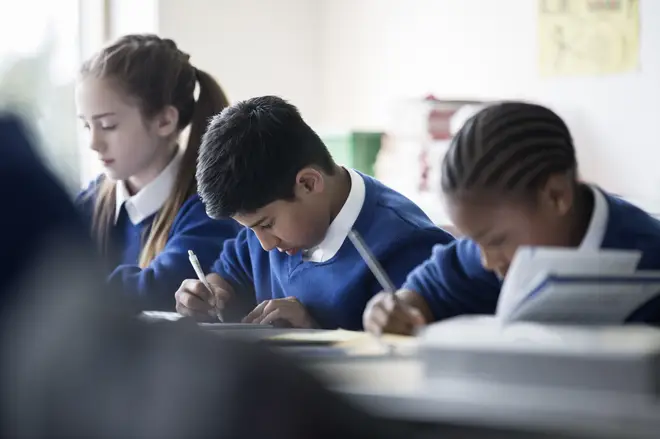On Air Now
Heart's Club Classics with Pandora Christie 7pm - 11pm
17 January 2023, 06:33

See the full list of dates teachers are striking in 2023 and what this means for your kids...
Teachers have voted for seven days of rolling strikes in February and March, it was revealed yesterday.
Following a vote balloted by the National Education Union (NEU), 90% of members in England backed the walkouts on a 53% turnout this afternoon.
Similarly in Wales, around 92% of members voted for the strikes on a turnout of 58%.
The UK’s biggest teaching union, the NEU, asked around 300,000 teachers to vote in favour in a dispute over pay and working conditions.

Schools may even be forced to close if they don't have enough staff to teach children safely.
During the last nationwide strike back in 2016, 11% of schools closed and 20% partially closed.

Teachers in England and Wales are striking in a dispute over pay.
The government is offering a pay rise of 5% which is around half the current rate of inflation, while the NEU wants an increase of 12%.
Dr Mary Bousted and Kevin Courtney, Joint General Secretaries of the National Education Union, said: "This is not about a pay rise but correcting historic real-terms pay cuts. Teachers have lost 23% in real-terms since 2010, and support staff 27% over the same period.
"The average 5% pay rise for teachers this year is some 7% behind inflation. In the midst of a cost of living crisis, that is an unsustainable situation."
In Scotland, teachers rejected a 5% increase, arguing for 10%.

According to the UK government’s Get into Teaching website, all qualified teachers start on a salary of at least £28,000 a year depending on where they are working.
In England outside London, the maximum salary on the pay scale for qualified teachers is £38,810 a year.
Teachers on the upper pay range can earn a maximum of £43,685 a year in England outside London and to get into this range, teachers must “make a sustained and substantial contribution to their school”.
In England outside London, leading practitioners earn between £44,523 a year and £67,585.